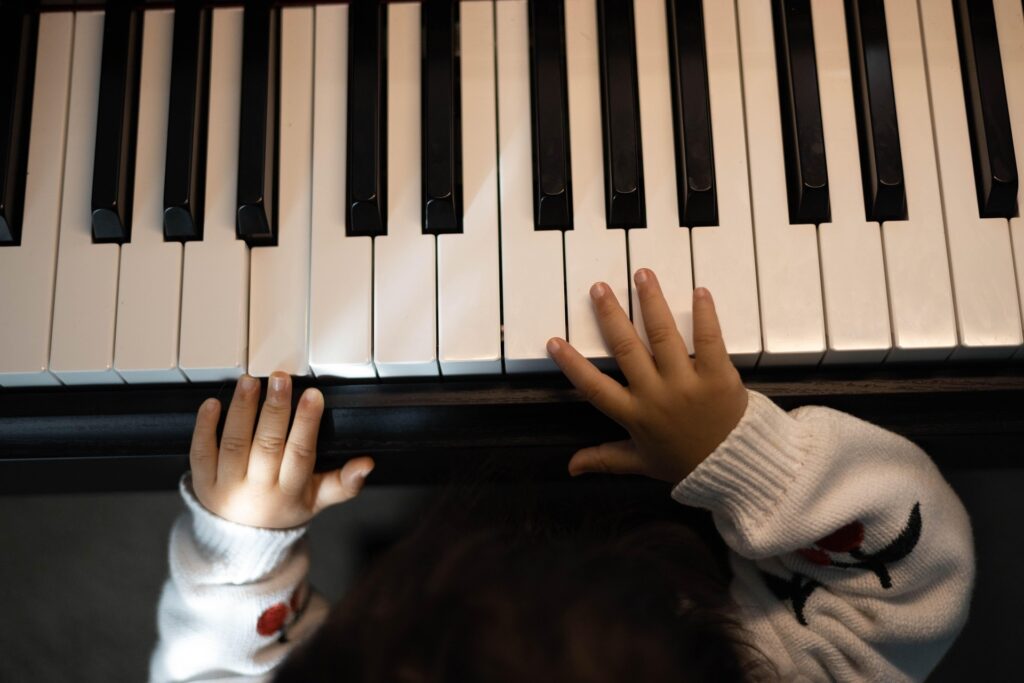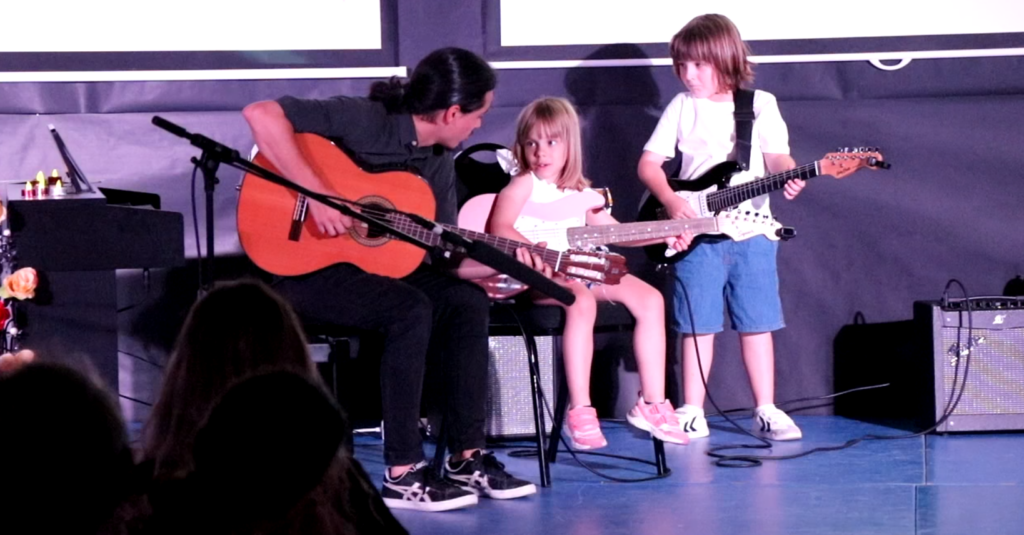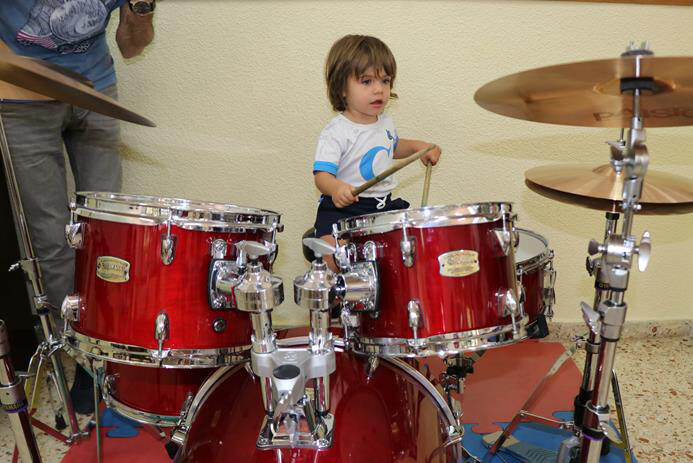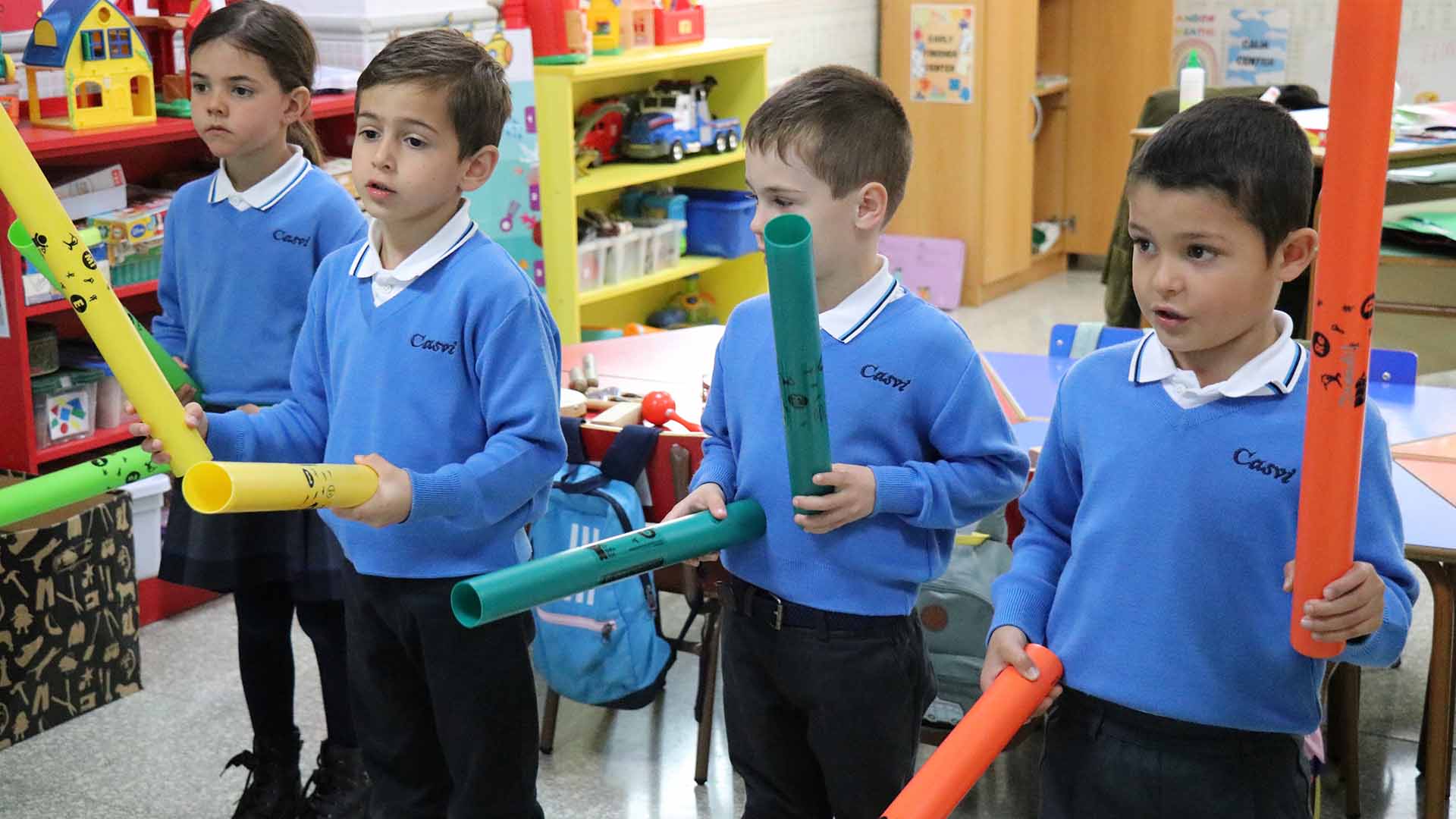In the first years of life, children go through a crucial stage in their development. However, many parents wonder whether music in Preschool education should be central or whether it is sufficient to see it as an extra activity.
THE RISK OF IGNORING MUSIC EDUCATION
Research shows that music influences cognitive, emotional and social areas. When it is neglected, children miss out on key opportunities:
- Reduced early stimulation for language development.
- Reduced social and cooperation skills.
- Fewer resources to deal with emotions such as frustration or anxiety.
According to UNESCO, music education is an essential element for a comprehensive childhood education.

MUSIC IN PRESCHOOL EDUCATION AS A DRIVING FORCE FOR INTEGRAL LEARNING

Far from being just entertainment, music in Preschool Education is a vehicle to promote education in multiple dimensions:
1. COMPREHENSIVE TRAINING
What is the importance of music education in the integral formation of students? Harvard University studies show that children who participate in musical activities develop working memory 30% faster and have a better ability to concentrate.
2. SOCIAL DEVELOPMENT
What impact does music have on the social development of students in the educational environment? Group singing and rhythmic games build cohesion, foster mutual respect and strengthen empathy. Sharing music strengthens group identity.
3. DIVERSITY OF APPROACHES
What are the different ways of integrating music in education?
- Songs and rhymes to reinforce vocabulary.
- Percussion games for motor coordination.
- Simple instruments such as maracas or xylophones.
- Integration in interdisciplinary projects with dance and theatre.
4. EMOTIONAL WELL-BEING
How can music contribute to the emotional well-being of students in the educational environment? Music activates brain regions such as the amygdala and hippocampus, regulating emotions and reducing stress. Relaxing melodies improve concentration, while playing instruments allows energy to be channelled in a positive way.

PRACTICAL ADVICE FOR FAMILIES
- Sing songs together before bedtime.
- Listen to a variety of music (classical, folk, international).
- Encourage children to improvise with homemade instruments.
- Use music as a routine to mark times of the day (getting up, picking up toys, relaxing).
CASVI VILLAVICIOSA'S COMMITMENT
At Casvi Villaviciosa International School, music in Preschool Education is an essential part of the school’s educational project:
- Weekly classes adapted to each age group. At 5 years old they are able to read sheet music.
- Use of songs, rhythmic games and instruments from the first cycle of Preschool Education.
- Group activities that encourage cooperation.
- Supporting emotional development with musical experiences that build confidence and self-esteem.
In short, music forms part of our vision of comprehensive and international education. Discover our musical project.
“Music is the disembodied entrance to the higher world of knowledge which humanity comprehends, but which humanity cannot comprehend. Music is a higher revelation than any philosophy. Architecture is a music of stones and music is an architecture of sounds. Never break silence except to improve it. Music must bring fire from the heart of man and tears from the eyes of woman.
FREQUENTLY ASKED QUESTIONS
How does music influence education?
Influye en la memoria, el lenguaje, la creatividad y la socialización, potenciando un desarrollo integral.
How can music be used to enhance students' self-expression?
Singing, improvisation and the use of instruments offer unique channels for expressing emotions and thoughts.
How can music be used to promote collaboration among students?
Actividades como coros, juegos de percusión o danzas fomentan trabajo en equipo, coordinación y respeto mutuo.
How can music foster creativity in the classroom?
Through improvisation, the invention of melodies or integration with plastic arts and theatre.

